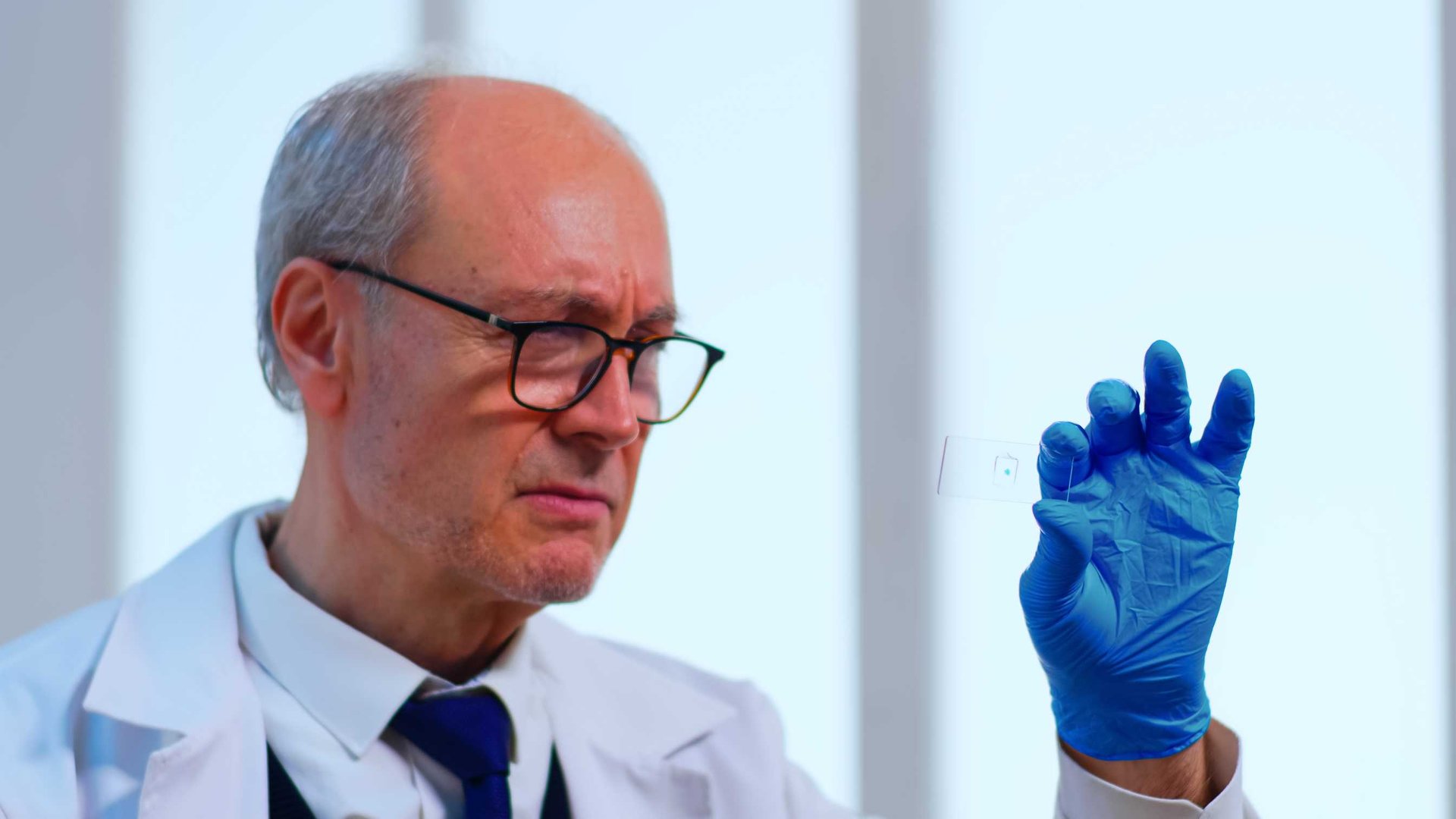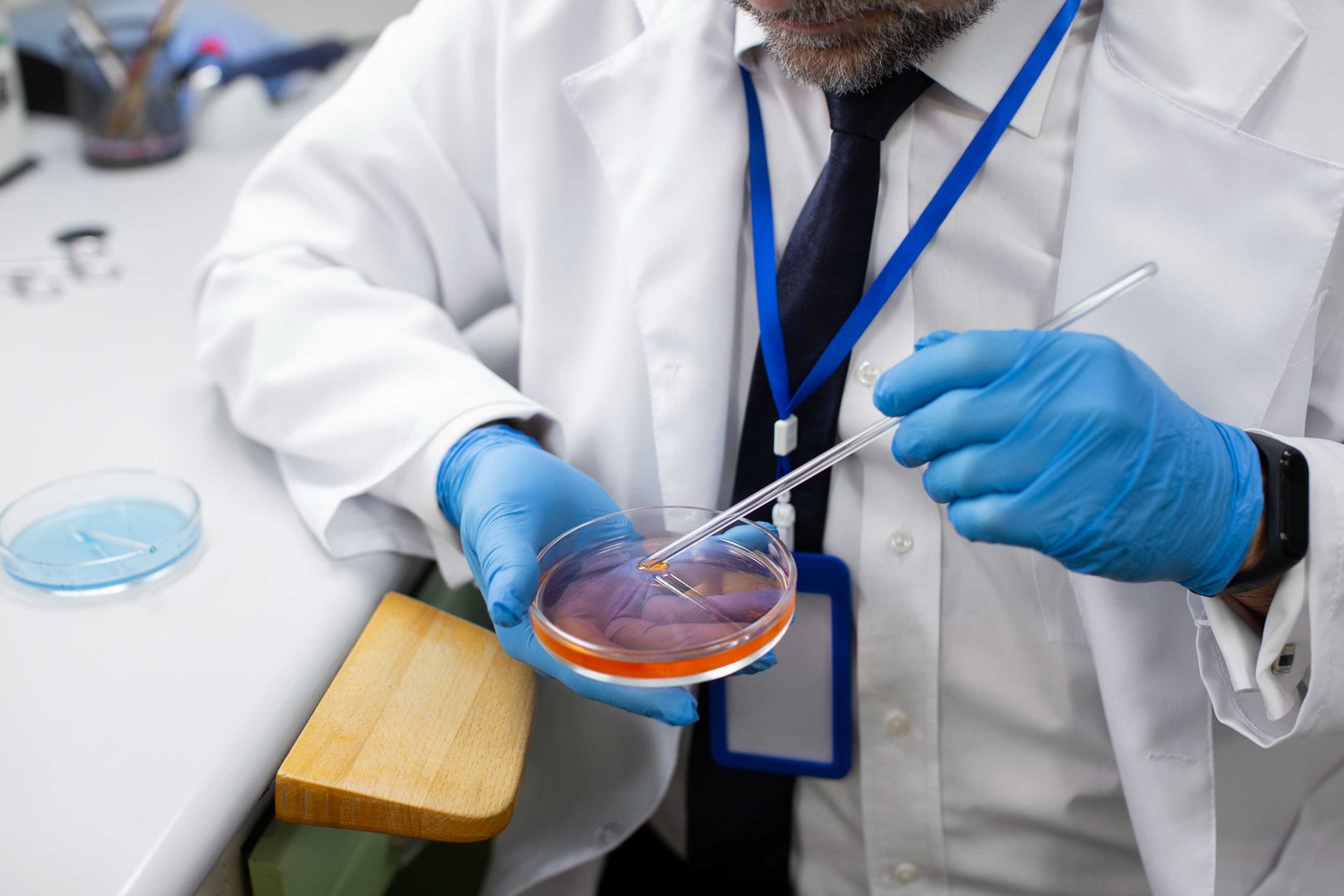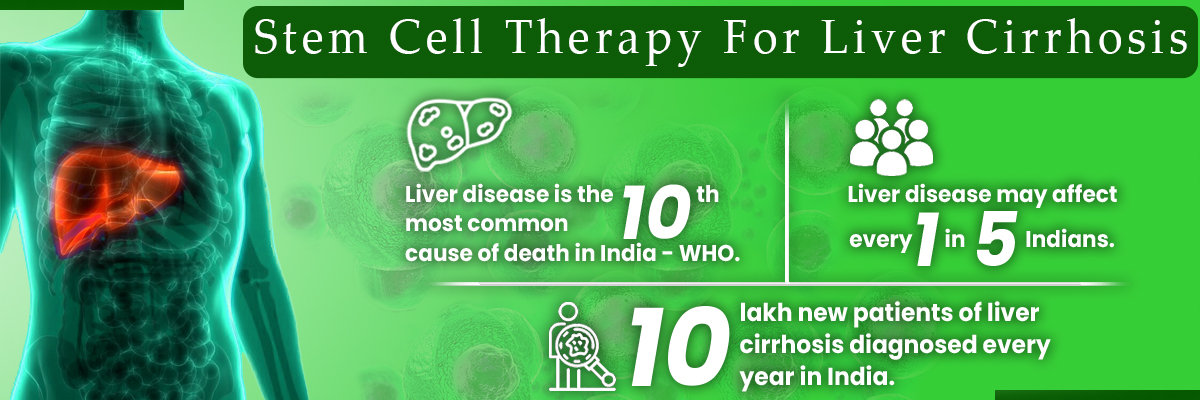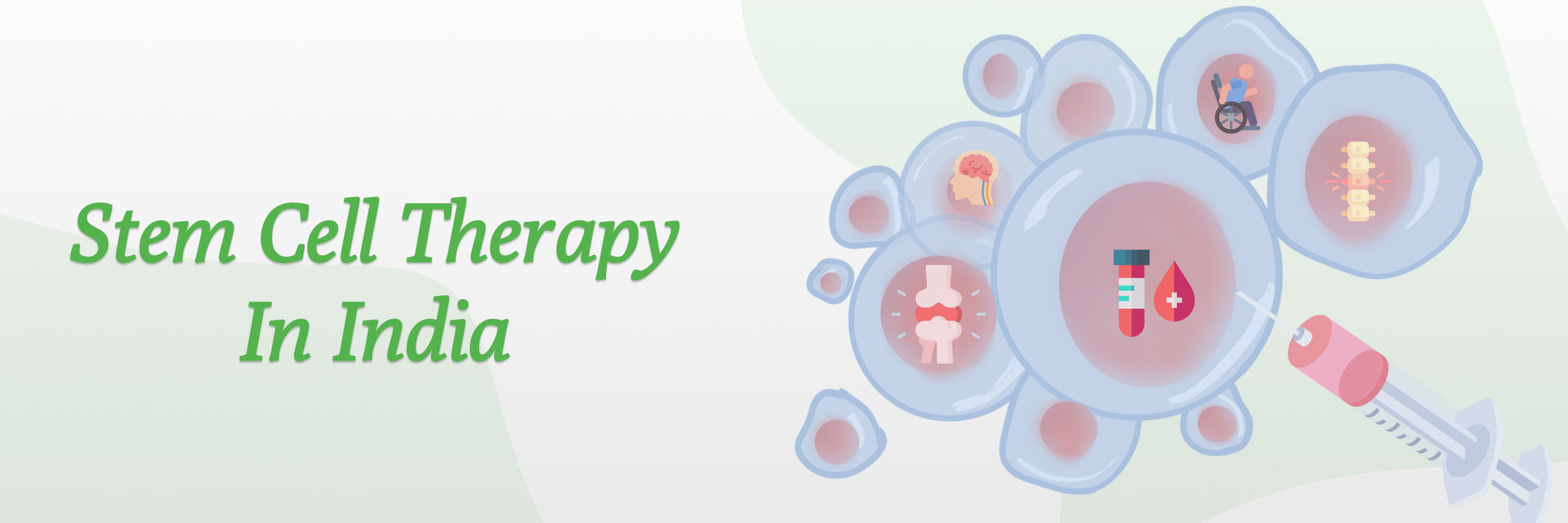Introduction
Prostate cancer is one of the most commonly diagnosed cancers in men worldwide, and for many, it’s a life-changing diagnosis that comes with both physical and emotional challenges. The prostate gland, which is a small walnut-shaped organ, plays a vital role in male reproductive health, but unfortunately, it is also very prone to developing cancer cells as men age. Connect with medical professionals to know more about stem cell treatment for prostate cancer. Standard prostate cancer treatment options like prostate surgery, hormone therapy, and prostate cancer radiation therapy have been the traditional approach for decades, but many men still face recurrence, side effects, and progression to advanced or even stage 4 prostate cancer. With prostate cancer metastasis being a leading cause of death among men with this disease, there has been an urgent need for newer therapies that go beyond just controlling symptoms.
In recent years, Stem Cell Research has opened up fresh avenues for prostate cancer therapy. Scientists are exploring how stem cells could be used either directly as a form of treatment or indirectly by understanding how cancer stem cells in the prostate gland behave. While stem cell treatment is still considered experimental in this area, the idea of combining targeted therapy, stem transplant techniques, and modern cancer research has started to reshape how we look at the future of prostate cancer treatment. This blog will explore what prostate cancer is, why stem cell therapy is being considered, the potential benefits, risks, costs, and where the future may lead.

What Is Prostate Cancer?
Prostate cancer occurs when abnormal cancer cells grow uncontrollably in the prostate gland. The exact prostate cancer causes are still being studied, but age, genetics, lifestyle, and diet play a big role. In its early stages, prostate cancer might not cause noticeable prostate problems, which is why many men don’t even realize they have it until it’s more advanced. As the disease progresses, symptoms such as difficulty urinating, blood in urine, pelvic discomfort, or erectile dysfunction may appear. If you are actually considering stem cell therapy as a viable treatment option, then book an online video consultation on our platform in minutes.
The seriousness of prostate cancer depends on how fast the tumor grows and whether it spreads beyond the prostate gland. Some men may live with a slow-growing tumor for years, while others may develop aggressive cancers leading to metastatic prostate cancer. When the disease spreads, often to the bones or lymph nodes, prostate cancer treatment becomes more complex, and doctors may recommend a mix of prostate cancer surgery, hormone therapy, prostate cancer radiation therapy, or chemotherapy. But despite these treatments, advanced cases can be resistant, which is why new approaches like stem cell–based prostate cancer therapy are drawing more attention in the world of cancer research.
Why Consider Stem Cell For Prostate Cancer
So, why are researchers even looking at stem cell treatment for prostate cancer? The answer lies in the discovery of a specific type of cancer cell known as prostate cancer stem cells (PCSCs). These are a small group of cells inside the tumor that seem to be responsible for tumor growth, spread, and relapse after prostate treatment. Standard therapies often kill the bulk of the tumor but fail to eliminate these stem-like cancer cells, which means the cancer can come back or turn into stage 4 prostate cancer with metastasis. Stem cells are unique because they can self-renew and transform into other types of cells. This same property, when hijacked by cancer, makes prostate cancer stem cells very dangerous. But from a treatment perspective, it also provides a potential target for researchers. If prostate cancer therapy could specifically target these cells using stem cell–based techniques or targeted therapy approaches, it might stop the disease from recurring or spreading.
Another reason stem cells are being considered is because of their role in regenerative medicine. After aggressive prostate surgery or prostate cancer radiation therapy, patients may suffer from severe side effects, such as incontinence or sexual dysfunction. Using stem cell preservation and stem cell donation techniques, researchers are exploring methods to regenerate healthy tissue in the prostate gland and surrounding areas, aiming to improve quality of life after prostate cancer treatment.

Types Of Stem Cells Used In Treatment
Different types of stem cells are under study in the context of prostate cancer treatment. Mesenchymal stem cells (MSCs), often taken from bone marrow or fat tissue, are known for their ability to reduce inflammation and promote healing. These cells have been studied for their role in carrying drugs or targeted therapy directly to the tumor site. Another group includes embryonic stem cells and induced pluripotent stem cells (iPSCs), which can be reprogrammed to become different types of cells. Although they’re not directly used for treatment right now due to ethical and safety concerns, they help researchers understand how prostate cancer stem cells function.
There are also experimental uses of stem transplant techniques in which donor stem cells may be modified to attack prostate cancer cells. While still early in development, such approaches are being researched in clinical trials to see if they could eventually be added to mainstream prostate cancer therapy. And let’s not forget the importance of stem cell storage and stem cell preservation. Many families are now storing umbilical cord blood and other sources of stem cells for potential future use. Though stem cell storage cost and stem cell preservation cost are still high, the idea is that these preserved cells could one day play a role in treating cancers, including prostate cancer.
Tumor Microenvironment & PCSC Plasticity
One of the trickiest aspects of treating prostate cancer is the tumor microenvironment. This is the “neighborhood” of cells, blood vessels, and molecules around the tumor. Cancer stem cells adapt and change according to this environment, a property known as plasticity. For example, when exposed to prostate cancer radiation therapy or chemotherapy, many cancer cells die, but PCSCs may switch into a dormant state and later “wake up,” leading to recurrence.
Understanding the tumor microenvironment is crucial for developing better prostate cancer therapy. Scientists are studying how to disrupt the signals that PCSCs receive from their environment. By blocking these signals, it might be possible to make stem-like cancer cells more vulnerable to prostate treatment, and potentially stop prostate cancer metastasis in its tracks.
Combining Stem Cell With Traditional Treatments
Stem cell treatment is unlikely to replace prostate surgery or radiation therapy anytime soon, but combining the two may offer better results. For example, stem cells could be used alongside prostate cancer radiation therapy to repair damaged tissue while simultaneously targeting prostate cancer stem cells. Similarly, stem cell–based targeted therapy may be combined with hormone therapy or chemotherapy to improve overall cancer treatment success.
There are also ongoing trials where mesenchymal stem cells are engineered to carry anti-cancer drugs directly to the prostate gland, minimizing damage to healthy tissue. Such approaches may reduce the side effects of prostate cancer surgery or radiation while making the treatment more effective against cancer cells.

Potential Benefits Of Treatment
The potential benefits of stem cell treatment for prostate cancer are significant, though mostly still experimental. They include:
- Directly targeting prostate cancer stem cells to reduce recurrence.
- Supporting the regeneration of healthy tissue after prostate surgery.
- Enhancing the effectiveness of prostate cancer radiation therapy and other cancer treatments.
- Reducing side effects by delivering targeted therapy precisely to the tumor.
- Offering new hope for patients with metastatic prostate cancer who don’t respond well to standard treatments.
If proven successful, these approaches could reshape prostate cancer therapy and change how doctors approach advanced or stage 4 prostate cancer. One should consider getting treatment from the best stem cell doctors in India.
Risks & Limitations
Like all cancer treatments, stem cell therapy comes with risks. The biggest limitation right now is that stem cell treatment for prostate cancer is still experimental. Most of the evidence comes from preclinical studies and a few early-stage trials.
We don’t yet know how safe or effective it will be in the long run. There are also risks of stem transplant rejection, uncontrolled cell growth, or unexpected side effects. Stem cell donation from another person may not always be a match, leading to complications. On top of that, high stem cell storage costs and stem cell preservation costs make it inaccessible for many patients.
Cost & Accessibility Of Treatment
Prostate cancer treatment itself can be expensive, especially when it involves surgery, radiation therapy, or advanced targeted therapy. Adding stem cell treatment to the mix only increases the cost. The price depends on factors like the type of stem cells used, whether stem cell donation is required, hospital facilities, and the country of treatment. Stem cell storage cost and stem cell preservation cost can also add to the financial burden if families want to preserve cells for future use. Currently, only specialized cancer research centers or private clinics offer stem cell therapy for prostate cancer, meaning accessibility is still limited.

Future Scope Of Treatment
Despite the challenges, the future looks promising. With advancements in Stem Cell Research, scientists are uncovering more about prostate cancer causes, the role of cancer stem cells, and how to combine stem cell preservation with targeted therapy. In the coming years, clinical trials may establish clear protocols for using stem cells either to regenerate damaged tissue after prostate treatment or to directly attack prostate cancer stem cells.
There is also hope that costs will come down as stem cell preservation technology improves, making it easier for patients to access such treatments. For now, prostate cancer therapy using stem cells remains experimental, but it represents a potential breakthrough in cancer treatment and cancer research.
Summary
Prostate cancer continues to be a major health challenge, especially when it progresses to metastatic prostate cancer or stage 4 prostate cancer. Standard treatments like prostate cancer surgery, hormone therapy, and prostate cancer radiation therapy have saved lives but still fall short in preventing recurrence and dealing with prostate cancer stem cells. Stem cell treatment is emerging as a new approach that could change the future of prostate cancer therapy.
While it offers many potential benefits, such as targeting cancer cells directly and regenerating healthy tissue, the risks, limitations, and high cost cannot be ignored. Stem cell donation, stem cell storage, and stem cell preservation remain expensive, and most therapies are still in experimental stages. However, with continued Stem Cell Research and advancements in cancer research, stem cell–based prostate treatment could eventually become a game-changer in how we fight prostate cancer.







